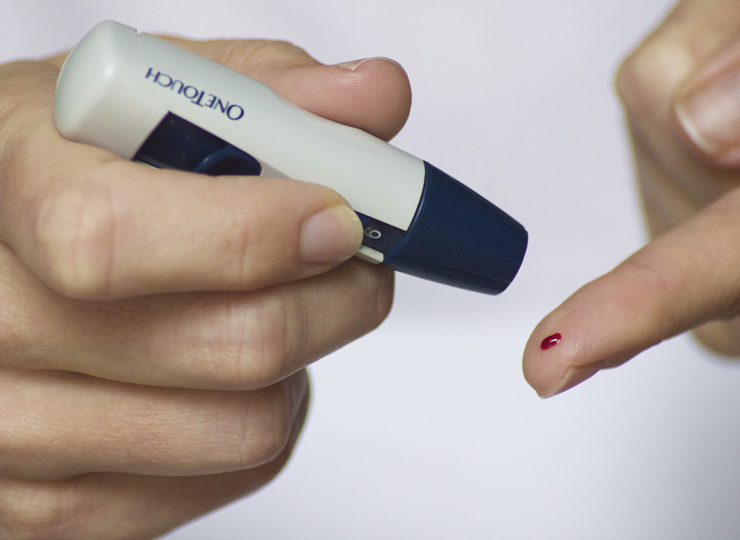
June 6, 2019
People with Type 2 diabetes should be treated promptly for their disease, which will not only help to manage their diabetes but may also help keep Alzheimer’s disease and other forms of dementia at bay, according to a new report. The study, from researchers at the University of South California, found that patients with untreated diabetes developed signs of Alzheimer’s disease 1.6 times faster than people who did not have diabetes.
“Our findings emphasize the importance of catching diabetes or other metabolic diseases in adults as early as you can,” said Daniel A. Nation, a psychologist at USC Dornsife College of Letters, Arts and Sciences. “Among people with diabetes, the difference in their rate of developing the signs of dementia and Alzheimer’s is clearly tied somehow to whether or not they are on medication for it.” The findings were published in Diabetes Care, a journal from the American Diabetes Association.
For the study, researchers collected data from the Alzheimer’s Disease Neuroimaging Initiative, a large and ongoing study that looks for early markers of Alzheimer’s disease. They focused on a subset of men and women age 55 and older, most of whom had Alzheimer’s disease or mild cognitive impairment, which often progresses to Alzheimer’s disease. Study volunteers were followed for up to 10 years.
The researchers had information on participants’ blood glucose levels and diabetes status. Among 900 study participants, 54 had Type 2 diabetes but were not being treated for it; 67 had diabetes and were getting treatment; 250 had elevated glucose levels, or prediabetes, which often progresses to full-blown diabetes; and 530 did not have diabetes.
They also looked at brain scans and levels of tau, a protein that builds up in the brain of those with Alzheimer’s disease, as well as results of memory tests and spinal fluid markers. One such marker, called Abeta peptide, can indicate the gravity of the disease, and higher levels in the spinal fluid often correlate with high levels of beta-amyloid plaques in the brain, a hallmark of Alzheimer’s disease.
The researchers found that those with diabetes who were not taking medicines for their disease were more likely to progress to Alzheimer’s disease than those who were not taking drugs for the condition.
“It’s clear that the medicines for treating diabetes make a difference in the progression of Alzheimer’s,” Dr. Nation said. “But it’s unclear how exactly those medications slow or prevent the onset of Alzheimer’s disease.”
Better understanding of the link between diabetes and Alzheimer’s could lead to better treatments for the devastating disease, though more study is needed before doctors should begin prescribing diabetes drugs for Alzheimer’s disease.
Diabetes is known to damage blood vessels throughout the body, including in the brain, and diabetes is a known risk factor for dementia. Scientists have also found links between insulin, a crucial hormone that helps the body maintain healthy levels of blood sugar and that is used as a treatment for diabetes, and the memory problems of Alzheimer’s.
Preventing diabetes in the first place may be one way to help maintain long-term brain health. Keeping weight down, getting regular exercise and eating a Mediterranean-style diet rich in fresh fruits and vegetables may all help to keep diabetes at bay – and in the process may help to stem the memory loss of Alzheimer’s.
By ALZinfo.org, The Alzheimer’s Information Site. Reviewed by Marc Flajolet, Ph.D., Fisher Center for Alzheimer’s Research Foundation at The Rockefeller University.
Source: Elissa C. McIntosh, Daniel A. Nation, for the Alzheimer’s Disease Neuroimaging Initiative for the Alzheimer’s Disease Neuroimaging Initiative: “Importance of Treatment Status in Links Between Type 2 Diabetes and Alzheimer Disease.” Diabetes Care, March 2019











